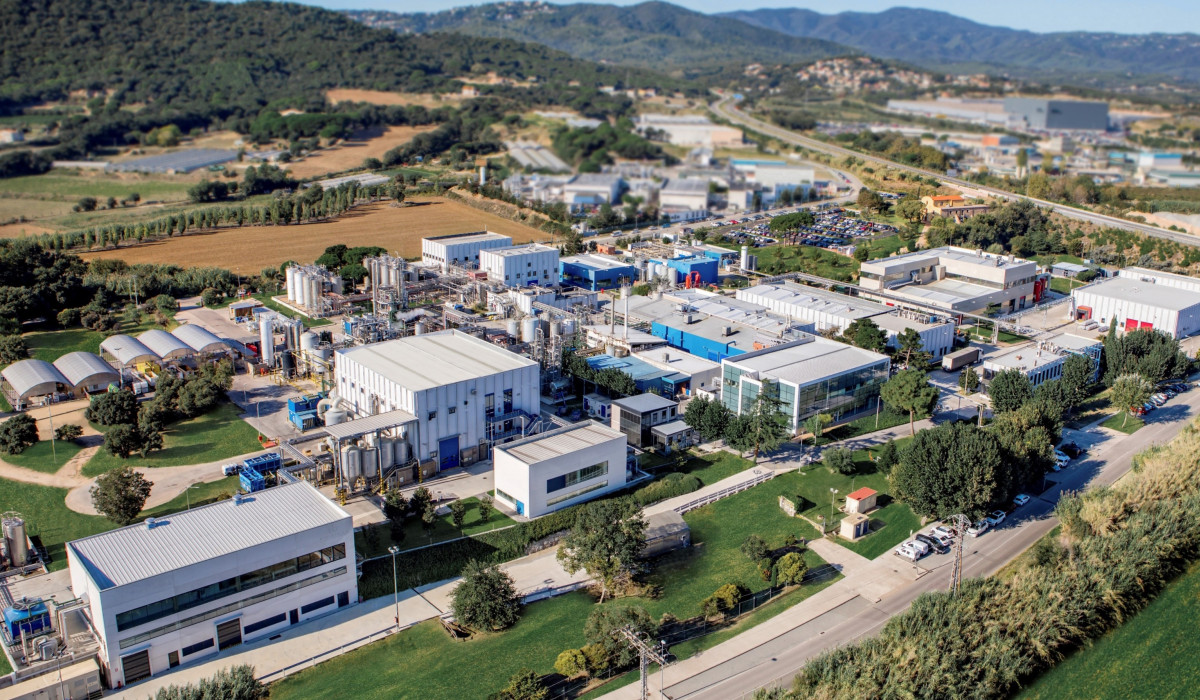5 insights to overcome pharma supply chain issues and build a more robust system

A functioning supply chain is instrumental to the delivery of important healthcare solutions to people across the world – something that was significantly highlighted during the COVID-19 pandemic and in the years following. Since then – whilst trying to repair the weak links exposed by the disruptions – businesses across the entire value chain continue to face a fresh wave of challenges and pressures, from relentless uncertainty to skyrocketing demand.
As a world reference in the development of biologically-derived active pharmaceutical ingredients (API) and nutraceutical branded ingredients, Bioiberica is experiencing those interruptions first hand, and we are learning a lot about how to survive challenges anew. To help customers across the pharmaceutical distribution network build more robust supply chains and effectively mitigate potential risks to avoid the disruption of important health products, we asked our CEO, Luis Solera, to share his expert insights and top tips.
5 insights to inspire supply chain optimisation
1. The basics: implementing the right structure
For the longest time, most businesses, from retail to pharmaceutical, relied on a ‘just-in-time’ operation model – which depended on stable workflows, single-supplier sourcing and close collaboration for any return on investment. But, as we all know, this careful balancing act was thrown into chaos in the early months of 2020.
A vertically integrated supply chain model, for instance, offers significant advantages over ‘just-in-time’ processes, including comprehensive control – from the collection of raw materials to final product development – and thus full traceability across operations. Such an approach put us – and our partners – in a much stronger position than most when the pandemic hit. Plus, this model futureproofs against potential upstream supply chain issues. As such, our customers can rely on us to supply the ingredients they need for their healthcare products.
2. Geographical distribution: the key to supply chain continuity?
Building a robust network of trusted suppliers is one of the most important steps to improving resilience to market volatility. The vulnerability of relying on a single sourcing partner – especially when the supplier is based overseas – was evident even before the pandemic. However, COVID-19 and recent geopolitical challenges have added significant pressure to already stretched distribution systems; accelerating the need to cultivate a varied network of connections.
Harnessing the combined power of multiple partners is an effective way to fuel innovation and ensure supply chain continuity – especially when times get tough or local disruptions arise. Since our foundation, we’ve placed the utmost importance on diversifying the sourcing of our starting materials from different geographical regions. In the 1990s, for instance, we began the process of establishing several processing sites strategically located around the world. Today, this enables us to collect as many animal by-products as possible to mitigate the risk of shortage in a particular region.
3. Supply chains are powerless without technology
Initiatives that could transform supply chain management include artificial intelligence for control towers and inventory monitoring. For example, by providing end-to-end visibility across the entire supply chain, control towers allow organisations to better understand, prioritise and resolve issues in real time, predict disruptions, reduce manual processes and limit material waste. Other gamechangers involve the Internet of Things (IoT) and blockchain technology. The IoT supports logistics management; helping to reduce errors and increase the productivity of ingredients. Meanwhile, blockchain solutions assist with data transmission, promote authenticity verification and guarantee more secure transactions; making supply chains more traceable and efficient.
4. Collaboration facilitates greater agility
Supply chains are complex, with relationships between parties in the network ranging from dependent to independent, or even interdependent. We believe that collaboration, openness and integrity are at the core of mitigating any potential risks in supply chain management to efficiently meet demand and ensure on-time delivery. Effective communication not only supports better business and provides visibility of potential risks upstream or downstream, but also sparks knowledge sharing between partners and creates a support network if issues occur.
As an example, we develop analysis techniques that support the characterisation of our active ingredients in collaboration with research centres and regulatory bodies to ensure our portfolio is compliant with the latest guidelines. This in turn means that our customers can trust the ingredients we supply them meet the latest pharmaceutical standards.
5. Contribute to a greener future with a circular economy model
Climate change is a significant threat to the security of healthcare supply chains. At Bioiberica, we follow circular economy principles, which are intrinsic to our everyday business operations. We obtain high value co-products from the by-products of our production procedures – processes which are also designed to minimise the consumption of water, energy and auxiliary raw materials. For instance, we treat the wastewater from our manufacturing processes and reuse it to ensure we don’t negatively impact the local water cycle or waste resources. This allows us to ensure excellence in the production and sustainability of our operations; looking after life, sustainably.
Looking ahead, we’re working towards a target of installing 1,000 KW of photovoltaic power via self-produced electricity, with the aim of reducing our environmental impact even further. Plus, we continue to nurture a greener future for all by aligning with six of the United Nations Sustainable Development Goals (SDGs).
Ready to modernise your pharma supply chain operations?
With continued disruptions expected to impact supply chains, combined with climate change threats, the healthcare industry will face multiple challenges for some time to come. With this in mind, is it time to welcome a new way of doing things when it comes to operations? Bioiberica’s agile supply chain supports the reliable supply of fully traceable, high-quality ingredients to nutraceutical and pharmaceutical manufacturers for their cutting-edge developments. In addition, we have the marketing and regulatory knowledge to help them enter new markets with ease and success. Discover the ways you can partner with us to bring healthcare products to the market safely and dependably in 2023 and beyond by visiting our partnership page.